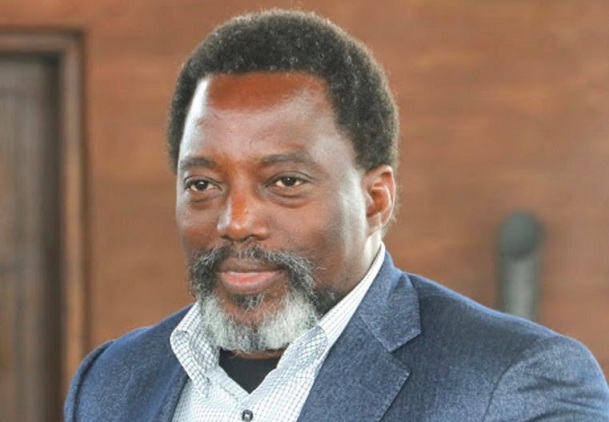
DR Congo’s Kabila says he won’t rule out returning to presidency
The Democratic Republic of Congo President Joseph Kabila is stepping down after this month’s election but he doesn’t rule out seeking the post again in the future.

In a rare interview with The Associated Press, the Congolese leader, who ended months of speculation earlier this year by announcing he would not run again this time, said he doesn’t know what retiring from politics means. He took power in 2001 after the assassination of his father, Laurent Kabila, and says there is still more to be done in this mineral-rich but “complicated nation.”
“Well, I am not going to rule out anything in life,” Joseph Kabila, relaxed and smiling, said. “As long as you are alive and you have ideas as strong as you have, a vision, you should never rule out anything.”
That kind of talk has worried Congo’s opposition, which fears that Kabila will rule from the shadows if his preferred successor, ruling party candidate and former interior minister Emmanuel Ramazani Shadary, wins in the long-delayed Dec. 23 election.
The 47-year-old Kabila dismissed those concerns, saying the constitution makes it clear that such an arrangement is not possible. Yet he now acts as the moral authority for a recently created political coalition, the Common Front for Congo, keeping himself close to power.
Kabila is eligible to run again for president in 2023, as Congo’s constitution merely rules out three successive mandates. For now, he said he will likely remain in the role of adviser: “If anyone wants advice from me, I hope they come and ask.”
Congo now faces what could be its first democratic, peaceful transfer of power since independence from Belgium in 1960, after a troubled history marked by Mobutu Sese Seko’s more than three-decade rule. At stake is a vast country blessed with trillions of dollars in natural resources but long destabilized by dozens of rebel groups.
Now an Ebola outbreak, the second-largest in history, poses a new threat to the election, whose delay since late 2016 led to sometimes deadly protests over Kabila’s long stay beyond his mandate. The government blamed the delays on difficulties in organizing the vote as a new wave of rebel fighting raged.
Critics of the delay “should be humble enough to realize that the Congo itself is a challenge and that the electoral process is a much bigger challenge,” Kabila said. Any country, be it the United States or France, would prioritize security over elections, he added.






